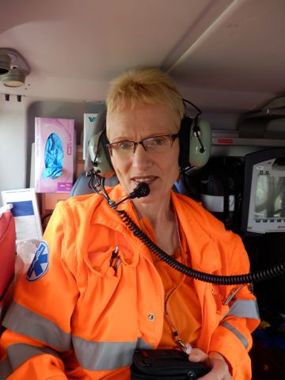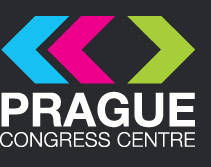Pandemic at first hand
In the autumn of 2019,a meeting of experts from the European Society for Emergency Medicine (EUSEM) took place at the Prague Congress Centre. Among the professional delegates was Dr. Šeblová, the Czech ambassador of the entire project. When discussing the topic of pandemics in the field of disaster medicine, the delegates could have never fathomed how spot on they were with the impending pandemic - which would hit within the year. These delegates would soon become members of the Front-Line in their respective countries for several months. According to Dr. Šeblová, it was not a question of whether the pandemic would strike or not, but when.The planned seminars and lectures were cleared from Jana Šeblová's calendar, and instead she found herself in the Front-Line. As she says, the time has come for all of us to revamp our previous methods and evolve to an unprecedented world-wide situation as quickly as possible.
Naturally, some of the most affected by the collosal pressure of this pandemic falls on our healthcare workers, whom are working tirelessly to address a situation that hasn't occurred within our lifetime. Jana Šeblová explains: “Currently, we are trying to orient our colleagues to new requirements and challenges. We are all learning as we go and are trying to share and discuss it to the fullest possible extent. At work, we have all had to adapt to new procedures and acquire skills that were not previously necessary (e.g. to dress appropriately, to remove personal protective equipment properly, to classify patients first in terms of the possibility of their infectivity, and further preventative measures). Alternatively, it is essential that we adapt how we’ve routinely operated to the new requirements. In the Czech Republic, we had a tremendous advantage in that the onset of the pandemic was 1-2 weeks later than many other countries, so we had the opportunity to learn from other’s."
Dr. Jana Šeblová Ph.D. is active in the community of physicians and, like many others, is part of online discussions and forums where health professionals communicate across continents to share the crucial knowledge and experience necessary to combat this pandemic. For example, The European Society of Emergency Medicine, which organized last year's Prague Congress, began with establishing regular webinars on COVID-19 issues for its members. However, according to Jana Šeblová, the situation also illustrates many positive aspects regarding the national response to the crises. Czech companies did not hesitate and started to produce shields and masks, which they subsequently donated to hospitals: “Although we aren’t generally sentimental, we were very moved . Especially over protective equipment (shields and filter face masks) at the beginning of the pandemic; we jumped with joy like small children near the Christmas tree."
According to her, the outbreak of the pandemic was only a matter of time, although other experts expected the flu virus to mutate. She cited the 2009-2010 swine flu pandemic as an example, which was far less aggressive, and many people did not register the implications of the situation.
From her point of view, however, she has seen a great shift in communication with health professionals: “Instruction and overall crisis management is incomparably better than then. In 2009-2010, long documents came from all sides (Ministry of Health of the Czech Republic, Czech Medical Society, and other institutions), which one could not even process, let alone pass on. The organization was chaotic, and if there had been a pandemic of today's dimensions, I do not even want to imagine it. Now, of course, not everything is flawless, but the instructions were from the beginning in a uniform graphic form, relatively brief and quite rational."
When asked what had given her hope lately, she replied: "Last week I treated two patients in serious condition, we managed to treat them both with our teams with regards to our safety. I diagnosed them both correctly and transported them to specialised departments. It may seem that this goes without saying, because it is my job, but today all emergency care systems must also address the issue of ensuring that patients are not affected by not receiving adequate care due to an excessive focus on a pandemic. We have to take care of patients with viral infections, but also with all other acute conditions (some of which can also be infected) - heart attacks, strokes and injuries do not take a break."
Dr. Jana Seblova, Ph.D. had been the chairwoman of the Czech Society of Emergency Medicine and Disaster Medicine for 12 years and is currently the scientific secretary. She also worked in the same role for 3 years in the European Society for Emergency Medicine (EUSEM). She has since moved on and works now as a physician in children's emergency admissions at the Motol University Hospital as well as the Kladno Regional Hospital. She is also the editor-in-chief of the journal ‘Urgentní medicína’ (Urgent Medicine).



Contact
Kongresové centrum Praha, a.s.
5. května 1640/65, Nusle
140 00 Prague 4, Czechia
Tel.: +420 261 171 111
Fax: +420 261 172 010
DataBox: k4ietd4
IN: 63080249
How to Get Here
Kongresové centrum Praha, a.s.
5. května 1640/65, Nusle
140 00 Prague 4, Czechia
Tel.: +420 261 171 111
Fax: +420 261 172 010
DataBox: k4ietd4
IN: 63080249
How to Get Here


